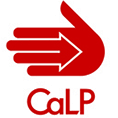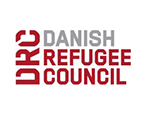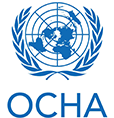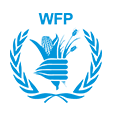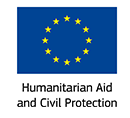Introduction
What, why, and for whom this toolkit exists
There is significant scope for increasing the use of multipurpose cash-based interventions in humanitarian responses. In appropriate contexts, this approach ensures better “value for money” by lowering transaction costs; it allows beneficiaries a wider and more dignified choice of assistance, based on their preferences; and it empowers vulnerable groups. It can be a vital contribution to making affected people the prime agents of response. Furthermore, multipurpose cash-based interventions support local markets and can enhance communities’ economic recovery, preparedness and resilience; and in certain cases complement existing social protection systems.1
Multipurpose Cash Grants (MPGs) are unrestricted2 cash transfers that “place beneficiary choice and prioritisation of his/her needs at the forefront of the response”.3
MPGs recognise that people affected by crisis are not passive recipients of aid who categorise their needs by sector. Any provision of direct assistance (whether cash, voucher or in-kind) is a form of income for aid recipients, who must make difficult decisions to prioritise various and changing needs over time. Assistance that is less fungible risks being sold or converted to meet other, more pressing needs. When people are not able to meet priority needs, they engage in negative coping mechanisms to increase their income or reduce their expenditures, such as taking on dangerous or illegal work or taking children out of school.
Currently, MPGs are the only aid modality designed to offer people affected by crisis a maximum degree of flexibility, dignity and efficiency commensurate with their diverse needs.4 For these reasons, MPGs can also contribute to more successful sector-specific interventions, enabling crisis-affected persons to utilise in-kind goods and access services as they were intended in addition to receiving cash assistance for basic needs.
Like other cash-based interventions, the MPG approach recognises that people affected by crisis do not cease to be economic actors who are constantly interacting with local markets for goods and services. As such, MPGs encourage humanitarian actors to better understand the local economy and market dynamics in a holistic way, whether the program objective is to meet sector-specific needs or a range of needs that may differ from family to family.
MPGs can be used regardless of context – urban and rural, rapid and slow onset, chronic and acute crises, and even natural and complex disasters. What is essential is a context-specific Situation and Response Analysis that prioritises a thorough assessment of the appropriateness and feasibility of different humanitarian interventions, including in-kind and other cash-based responses. As such, MPGs can be used alone or alongside other sector-specific interventions, even enhancing the latter’s effectiveness. Indeed, as part of the World Humanitarian Summit, a high-level panel of experts suggested:
“... make cash central to future emergency response planning. Moving to a coordinated system of cash transfers is an opportunity for broader reform of the humanitarian system, so that aid providers of the future can work in a more complementary way to maximise their impact.”5
As people use cash to meet a multitude of humanitarian needs, multipurpose cash assistance therefore requires a multi-sector and often inter-agency approach to assessments, analysis, programme design and implementation. There is a gap in inter-agency resources to deal with multipurpose cash, and a need for operational guidance beyond agency- or sector-specific tools.
This operational guidance and toolkit brings together worldwide expertise on cash-based interventions (CBIs). It provides comprehensive and practical guidance for humanitarian actors to assess the feasibility, conceptualise the design and structure the implementation of MPGs.
The guidance focuses on MPGs whose primary objective is to meet basic needs as defined by affected people themselves, International Humanitarian and Human Rights Law and Sphere Standards. However, the nature of MPGs means they can be easily “topped” up for time-bound and specific needs that can be met by cash, e.g. school supplies or seasonal livelihoods activities.
As MPGs present both opportunities and risks from a protection and “Do No Harm” perspective, protection features prominently in the guidance and toolkit. However, many of the “protection flags” that appear in each section are not specific to MPGs but applicable to all forms of assistance, both in-kind and cash-based.
Finally, the toolkit assumes a basic knowledge of CBIs and does not repeat what is better described elsewhere, such as assessment of financial services for the delivery of cash assistance. Rather it adds value by focusing on what is new to humanitarians as we increasingly experiment with this type of cash assistance. As such, this document should be reviewed periodically for updates. For the most recent information on MPGs and information on CBIs in general, readers should visit the Cash Learning Partnership website.

 ) highlight the potential protection benefits and risks of MPGs. Exclamation points (
) highlight the potential protection benefits and risks of MPGs. Exclamation points ( ) indicate short cuts that can be taken when time is of the essence, and more in-depth analysis can happen later when lives are not at stake.
) indicate short cuts that can be taken when time is of the essence, and more in-depth analysis can happen later when lives are not at stake.
